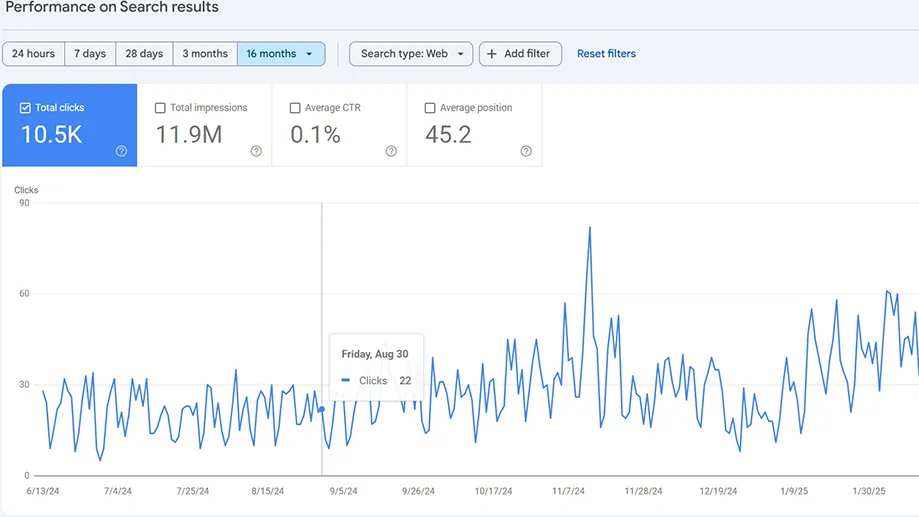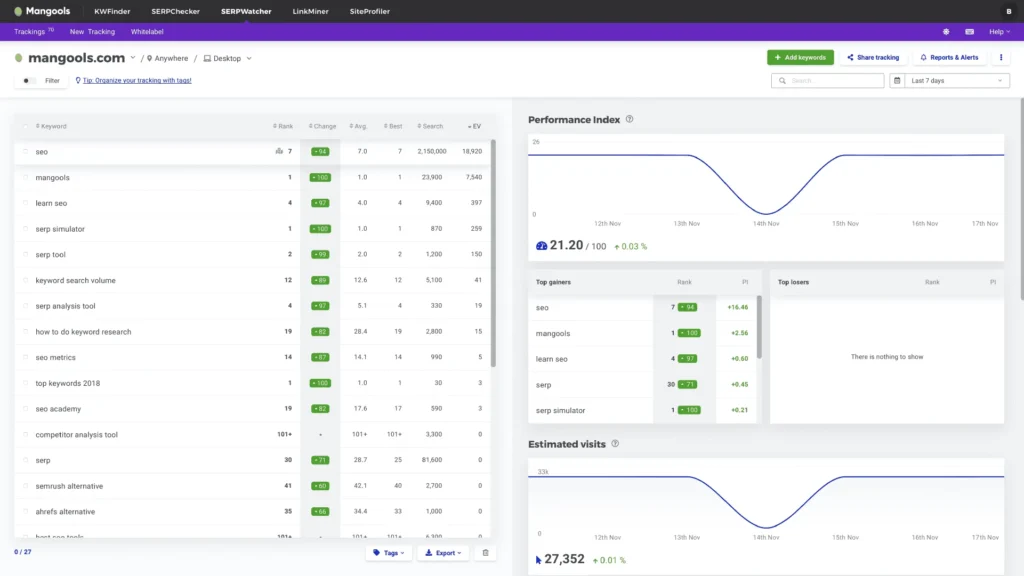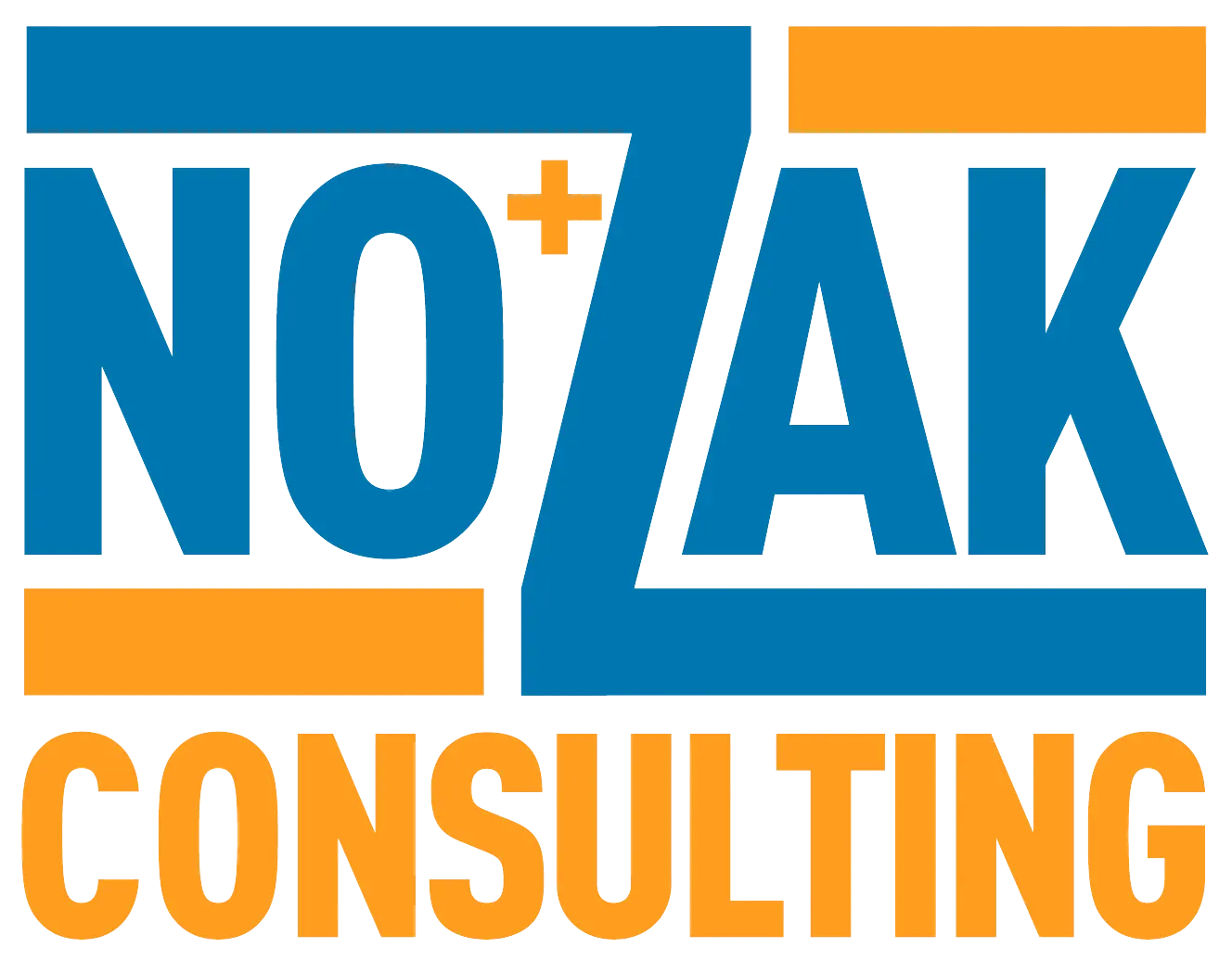Tracking where your website ranks for target keywords is essential to understanding whether your SEO strategy is working. A reliable rank checker gives you the data you need to make informed decisions about content, optimization, and competitive positioning.
The challenge isn’t finding a rank checker—it’s finding one that delivers accurate data without breaking your budget or overwhelming you with features you’ll never use.
What Makes a Good Rank Checker Tool?

Not all rank checkers are created equal. The best tools provide accurate ranking data across multiple search engines and locations, track historical changes so you can spot trends over time, and offer competitive analysis to show where you stand against rivals.
Beyond the basics, look for these capabilities:
- Real-time or daily ranking updates
- Local and mobile ranking tracking
- SERP feature monitoring (featured snippets, knowledge panels, etc.)
- Customizable reporting and data exports
- Integration with other SEO tools you already use
A quality rank checker should save you time while providing actionable insights. If you’re constantly questioning the accuracy of your data or struggling to understand what the numbers mean, it’s time to consider a different tool.
Google Search Console: The Free Foundation

Start here before investing in paid tools.
Google Search Console shows you exactly which queries bring users to your site and where you appear in search results. The performance report reveals average positions, impressions, and click-through rates for every keyword Google associates with your pages. It’s free, it’s directly from Google, and it provides insights no third-party tool can fully replicate.
The main limitation is perspective. Search Console only shows data for your own site, not your competitors. The interface can also feel clunky when you’re trying to track specific keywords across multiple pages or compare ranking changes over extended periods. Use it as your baseline and supplement with specialized rank checker tools for deeper analysis.
SEMrush: Enterprise-Level Tracking for Serious SEO
SEMrush has built its reputation on comprehensive keyword tracking paired with competitive intelligence. The Position Tracking tool monitors your rankings daily and compares them against up to 20 competitors. You can track local rankings down to the zip code level and see how you perform on mobile versus desktop.
What sets SEMrush apart is context.
When your rankings change, you see exactly what else happened in the SERP—which competitors moved, what featured snippets appeared, how search volume fluctuated. The platform connects ranking data to traffic estimates, giving you a clearer picture of how position changes affect your bottom line. For companies serious about dominating their market, SEMrush provides the intelligence needed to outmaneuver competitors.
The trade-off: The learning curve can be steep, and the price tag reflects the enterprise focus. Smaller businesses might find themselves paying for features they rarely use.
See Related: 4 Semrush Alternatives For Digital Marketers
Ahrefs: Built by SEOs for SEOs

Ahrefs approaches rank tracking as one component of a complete SEO workflow. The Rank Tracker monitors unlimited keywords with daily updates and shows ranking distributions across position ranges. You can filter by tags, track local rankings for specific locations, and monitor SERP features your site occupies.
The real power emerges when you combine rank tracking with Ahrefs’ other tools:
- Notice a ranking drop? Pull the page up in Site Audit to check for technical issues
- See a competitor rising? Analyze their backlink profile
- Spot an opportunity? Use Keywords Explorer to find related terms to target
Ahrefs doesn’t just tell you where you rank—it helps you understand why and what to do about it. The interface feels intuitive for anyone familiar with SEO concepts, though newcomers might need time to appreciate the depth of data available. Like SEMrush, it’s priced for professional use, but the investment pays off in actionable intelligence.
See Related: Ahrefs vs SEMrush: Which SEO Tool Is Worth Your Money?
Moz Pro: User-Friendly Rank Tracking with Solid Fundamentals
Moz Pro emphasizes simplicity without sacrificing essential features. The Rank Tracker monitors keyword positions across search engines and locations while presenting data in clean, accessible dashboards. Color-coded indicators make it easy to spot wins and losses at a glance. Weekly ranking updates keep costs down compared to daily tracking, though you can adjust the frequency for priority keywords.
The tool integrates seamlessly with Moz’s Page Optimization feature, which suggests improvements based on ranking factors for specific queries. Moz works particularly well for small to mid-sized businesses that want professional-grade tracking without overwhelming complexity.
The community resources and educational content help users understand not just what ranks, but why certain pages succeed or struggle. If you’re wondering why you’re not ranking on page 1, Moz’s recommendations provide a solid starting point.
Mangools SERPWatcher: Streamlined Tracking at a Fair Price

Sometimes you need straightforward rank tracking without enterprise bells and whistles.
SERPWatcher, part of the Mangools suite, focuses on doing one thing exceptionally well—showing you where you rank and whether you’re moving up or down. The Performance Index metric distills your overall ranking progress into a single number, making it easy to gauge trajectory at a glance. Daily ranking checks, local tracking, and competitor monitoring cover the essentials.
Mangools targets freelancers, consultants, and small businesses that need reliable data without spending thousands annually. The trade-off comes in advanced features—you won’t find the deep competitive analysis or extensive integrations available in pricier platforms. But for straightforward rank monitoring, SERPWatcher delivers excellent value.
SE Ranking: Flexible Options for Growing Businesses
SE Ranking offers an unusual pricing model that appeals to businesses with fluctuating needs. You pay based on the number of keywords you track and how often you check them, allowing you to scale up during busy periods and dial back when appropriate.
Key features include:
- On-demand ranking checks when you need immediate data
- Tracking by city for local SEO
- Detailed SERP analysis with featured snippet opportunities
- White-label reporting for agencies serving multiple clients
The interface occasionally feels less polished than premium competitors, but the functionality is solid. For businesses that want flexibility in both features and pricing, SE Ranking presents a compelling middle ground between budget tools and enterprise platforms.
AccuRanker: Speed and Precision for High-Volume Tracking
When you need to track thousands of keywords with minimal delay, AccuRanker delivers.
The platform updates rankings on-demand, often returning results within minutes. This responsiveness makes it particularly valuable during campaigns where you need to verify changes quickly. AccuRanker excels at technical accuracy, using sophisticated methods to avoid detection and provide genuine ranking data.
The specialization comes with limitations in other areas. AccuRanker focuses intensely on rank tracking without the content analysis, site audit, or backlink tools found in comprehensive SEO platforms. Companies already using tools like backlinks checkers and other specialized software may appreciate AccuRanker’s focused approach.
Nightwatch: Visual Tracking with Emphasis on Insights
Nightwatch stands out for its visual approach to rank tracking data. The platform presents ranking changes through intuitive graphs and charts that make trends obvious even to non-technical stakeholders. The Share of Voice metric shows what percentage of potential traffic you capture compared to competitors.
The tool integrates with Google Analytics and Search Console to connect ranking movements with actual traffic and conversion data. This holistic view helps justify SEO investments by demonstrating business impact rather than just position changes. Nightwatch serves agencies and in-house teams that need to communicate SEO progress to executives or clients who want clear, visually compelling reports.
The price falls between budget and enterprise options, offering solid value for its feature set.
Choosing the Right Rank Checker for Your Needs
Your ideal rank checker depends on several factors: budget, scale of operation, technical sophistication, and what other tools you already use.
Small businesses and solopreneurs typically benefit from straightforward options like Mangools or SE Ranking. These provide essential tracking without requiring extensive training or significant financial commitment.
Agencies handling multiple clients often need white-label reporting and scalable keyword tracking, pointing toward SE Ranking or Nightwatch.
Larger companies competing in difficult markets should consider comprehensive platforms like SEMrush or Ahrefs. The higher cost brings deeper competitive intelligence and integration with broader SEO workflows.
Technical teams managing numerous sites might prioritize AccuRanker’s speed and API capabilities.
Most businesses find value in combining Google Search Console’s free data with one paid tool that addresses specific gaps. You might use Search Console for discovering new ranking opportunities while relying on Ahrefs for competitive tracking and technical audits.
Beyond the Numbers: Using Rank Data Effectively
A rank checker is only as valuable as the actions you take based on its data.
When you spot ranking improvements, analyze what’s working. Did recent content updates help? Has your backlink profile strengthened? Understanding success factors helps you replicate results across other pages.
Declining rankings demand investigation:
- Technical issues affecting site performance
- Increased competition in your niche
- Algorithm updates changing ranking factors
- Content decay as information becomes outdated
Improving your SEO to rank higher requires diagnosing problems accurately before attempting fixes.
Pay attention to SERP features like featured snippets, local packs, and knowledge panels. Ranking #1 matters less if a featured snippet pushes your result below the fold. Adapt your optimization strategy to capture these enhanced listings when possible. Monitor competitor movements alongside your own rankings to reveal opportunities you’d otherwise miss.
Setting Up Effective Rank Tracking
The way you configure your rank checker affects the insights you gain.
Start by prioritizing keywords based on business value rather than tracking everything indiscriminately. Focus on terms that drive conversions, not just traffic. Segment keywords by intent, topic, and funnel stage. This organization helps you spot patterns—perhaps your informational content ranks well while transactional pages struggle, suggesting where to focus optimization efforts.
Track local variations if you serve specific geographic markets. Rankings can vary significantly by location, and understanding regional performance helps you allocate resources effectively.
Quick setup tips:
- Set up competitor tracking for businesses that directly compete for your target keywords
- Configure alerts for significant ranking changes so you can respond quickly
- Review weekly or monthly rather than obsessing over daily fluctuations
- Connect ranking data to your analytics platform for deeper insights
A sudden drop might indicate a technical issue needing immediate attention, while a spike presents an opportunity to double down on what’s working.
Integrating Rank Tracking Into Your SEO Workflow
Effective rank tracking isn’t a standalone activity—it fits into a broader SEO strategy.
Use ranking data to inform content creation by identifying topics where you’re close to page one but not quite breaking through. These represent opportunities for optimization that can yield relatively quick wins. Combine rank tracking with traffic analysis to understand how position changes affect actual visitors.
Sometimes rankings improve without corresponding traffic increases, suggesting issues with title tags, meta descriptions, or SERP competition that discourage clicks.
Connect ranking data to conversion tracking when possible. This reveals which keywords not only drive traffic but actually contribute to business goals. You might discover that ranking #5 for a high-intent keyword generates more revenue than ranking #1 for a broader, less qualified term. For more SEO tools and information to complement your rank tracking, build a toolkit that addresses different aspects of optimization.
What the Pros Track (Besides Rankings)
Smart SEO professionals use rank checkers to monitor more than just position numbers:
- SERP feature opportunities – Which snippets, local packs, or knowledge panels can you capture?
- Ranking distribution – How many keywords rank on page 1 vs page 2 vs page 3?
- Visibility score – What percentage of potential search traffic do you capture?
- Competitor share of voice – Who’s dominating your target keywords?
- Seasonal patterns – When do certain keywords peak in importance?
These metrics provide context that raw rankings can’t deliver.
Start Tracking What Matters
The best rank checker is the one you’ll actually use consistently to drive better decisions.
Begin with clear goals for what you want to learn from ranking data, then choose tools that deliver those insights efficiently. Start simple if you’re new to rank tracking. Google Search Console plus one paid tool covers most needs while you develop your SEO skills and understanding.
Remember that rankings are a means to an end, not the ultimate goal. They indicate visibility and competitiveness, but traffic, conversions, and revenue matter more. Use rank checkers to guide optimization efforts, not as a scorecard that causes unnecessary stress over minor fluctuations.
Ready to Improve Your Rankings?
Tracking your rankings is just the first step. Understanding what the data means and taking strategic action separates businesses that see steady growth from those that stagnate.
The Nozak Consulting team has spent years helping businesses across industries improve their search visibility and drive measurable results. We don’t just track rankings—we develop comprehensive strategies that move the needle on traffic, leads, and revenue.
Whether you’re struggling to break onto page one or looking to dominate your market, we can help you create and execute an SEO strategy that delivers real business growth.
Schedule a call with Nozak Consulting today and let’s discuss how we can help you climb the rankings and achieve your goals.
